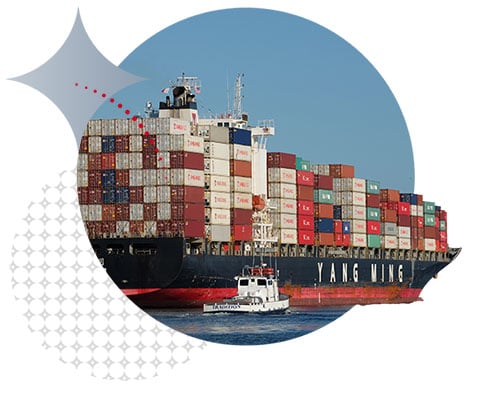Currency Exchange Solutions for the Supply Chain Industry



We help the supply chain industry save time and money on international payments
5 minute readSupply chains have faced major disruptions in recent years, with the impact of COVID-19 having posed a particularly severe challenge: businesses around the world had no choice but to adapt their processes in order to respond to changes in supply and demand from customers, governments and suppliers. With the renewed focus on the integrity of global supply chains that has been brought by the pandemic, many companies are now seeking to invest in more robust, reliable ways to bring their goods to market.
While some organisations, on the one hand, have sought domestic suppliers to reduce the potential disruption caused by border closures, most businesses simply cannot do this when looking to import specialist goods and components. As far as most businesses are concerned, creating a more robust supply chain will mean seeking alternative suppliers and new partners across the globe – and it is imperative, in this case, that they seek to protect their profits by mitigating their foreign exchange risk.
What contribution does the supply chain industry make?
It would be almost impossible to overstate the importance of global supply chains in the modern era, given the extent to which it is relied upon by businesses of every stripe. In the absence of functioning supply chains, national economies face an increased risk of supply chain disruptions, shortages of key goods and price inflation.
The global supply chain management market was valued at $15.85bn in 2020, and it is projected to reach almost $31bn by 2026. Germany's SAP was the leading supply chain management software supplier, with revenue of around 4.4 billion U.S. dollars in 2020.
How international payments affect the supply chain industry
The vulnerability of the modern supply chain industry to currency volatility owes to its globalised nature: from transport and storage to packaging and wholesalers, there are often multiple points along the supply chain that span the globe. Many businesses have little choice but to do business with suppliers only accept payment in a single foreign currency, which leaves them particularly exposed if that supplier’s local currency rallies at the expense of their own.
Whether your business is a wholesaler importing from overseas or a manufacturer aiming to launch your goods in a foreign market, there are many reasons why you may require the support and guidance of a currency provider in navigating the global supply chain. Currency specialists can help address a wide range of business requirements, including managing urgent international transactions and mitigating the risk of currency fluctuations.
Whilst many businesses rely upon banks to execute their foreign exchanges, they often lose money due to the costly transfer fees charged by banks and FX providers. By working with a specialist and planning all your foreign exchange exposure and budgets well in advance, we can help you protect your margins.
How we can help your business save money
By taking out a Moneycorp business account, businesses who make regular use of the supply chain can rely upon a valuable, cost-effective service. With 24/7 access to a secure online platform, you can process and manage the range of international payments that you may need to make.
Each of our clients is assigned an account manager who understands the ins and outs of their sector. They will guide you through periods of currency volatility to ensure that you are offered a solution that is tailored to your business needs.
Our solutions for global payments allow you to make bulk payments for any business costs or staff salaries in over 120 different currencies to over 190 countries. You can also use a range of FX tools, including currency forwards, stop loss and limit orders and spot trade contracts.
How has Brexit had an impact on the supply chain industry?
Brexit has caused a number of issues for British businesses. More than half of UK respondents to a CIPS Brexit Survey in 2018 reported that currency fluctuations had made their supply chains more expensive, with constant depreciations in the value of the pound often occurring when there was a widespread perception that Britain was faring poorly in Brexit negotiations.
According to an Ivalua survey, four in five UK businesses felt that Brexit had caused the greatest supply chain disruption, and almost a third of businesses reported having lost revenues as a result of these disruptions.
Read our article for more guidance on the alternative markets that you might want to consider for overseas suppliers in a post-Brexit landscape, and find out more about the impact of Brexit on a range of industry sectors today.
Our international payments solutions for your business
To find out more about our foreign exchange and global payment solutions for businesses, you can view our brochure.




